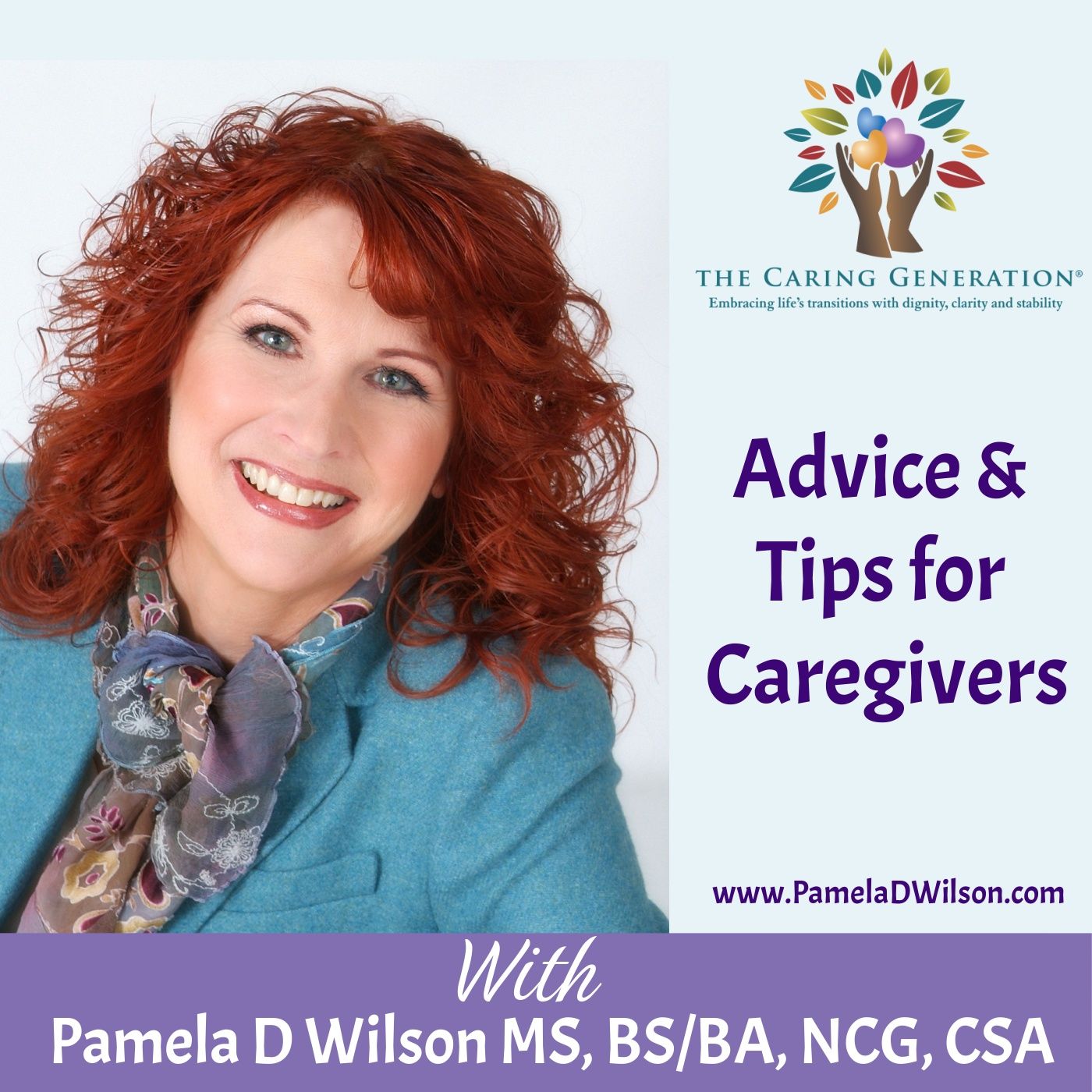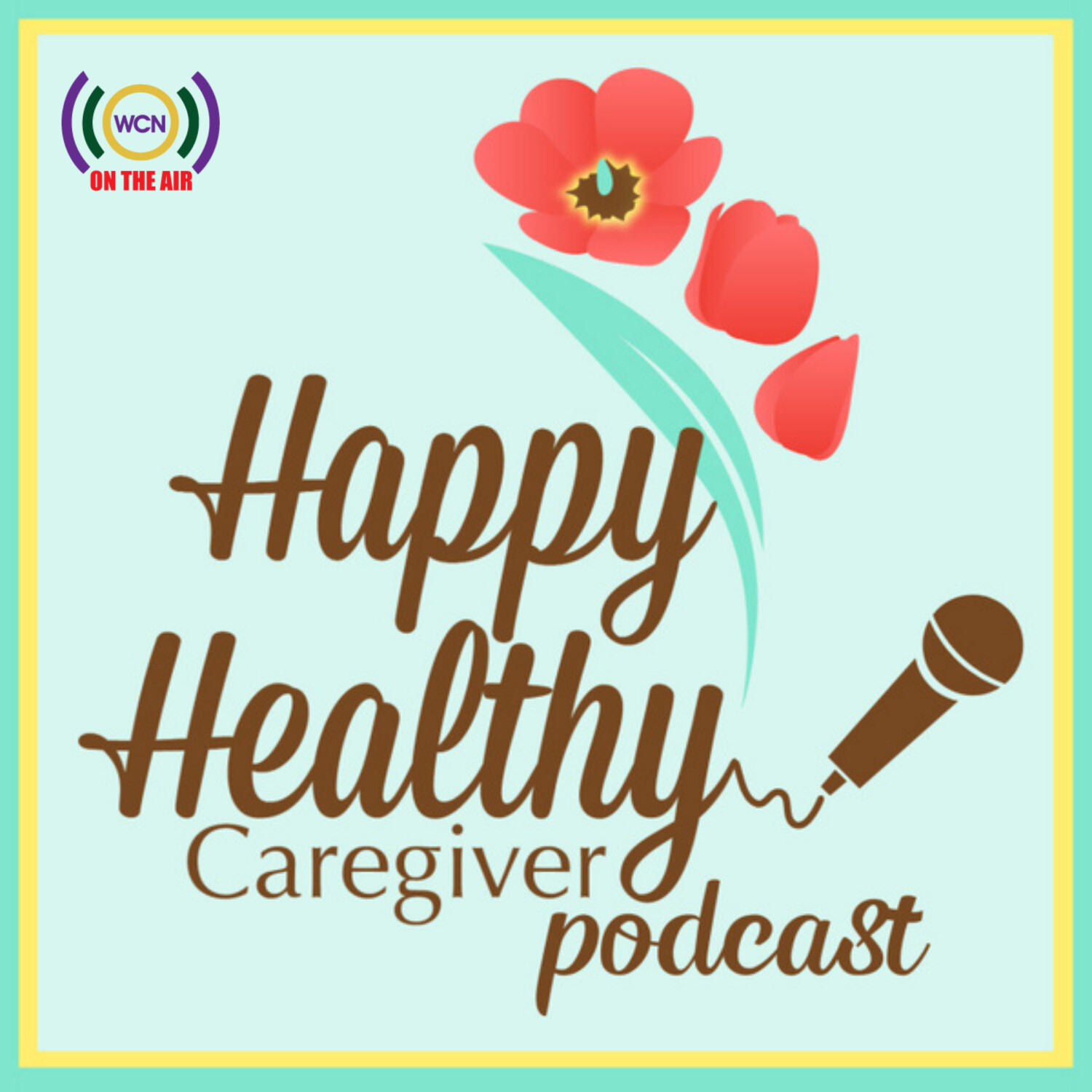
The Caregiver Innovation Show
The Caregiver Crisis Podcast
For family caregivers juggling it all — work, kids, aging parents — this podcast is your lifeline.
We cut through the overwhelm to bring you real stories, practical tips, and tech tools that help you care smarter, not harder.
Hosted by The Caregiver Crisis Initiative, each episode explores simple ways to reduce stress, keep loved ones safe at home, and restore your peace of mind. No fluff. No guilt. Just real help.
🎙️ Featuring expert guests, product spotlights, and caregiver voices.
🧠 Learn what works, when to use it, and why it matters.
🔒 Save the “how” for when you're ready to go deeper inside our private community.
Free Starter Toolkit →
Tech Partner: Electronic Caregiver
Subscribe and join the movement to make care easier — one episode at a time.
🎧 Become a supporter of the show!
https://www.buzzsprout.com/2408853/support
The Caregiver Innovation Show
Aging in Place with Dignity: How Addison Makes Home the Safest Place to Be
The vast majority of seniors—over 90%—want to age in their own homes, but this desire comes with significant challenges for both the elderly and their families. Virtual health assistants like Addison offer a potential solution by providing 24/7 support that helps seniors maintain independence while giving families peace of mind.
• Fall detection technology connects seniors to emergency help instantly
• Medication reminders ensure proper dosage and timing
• Daily check-ins and activity tracking establish baselines for well-being
• Remote dashboards allow family members to stay informed without constant calling
• Technology can help delay or avoid moves to assisted living facilities
• Conversations about implementing technology should focus on increased freedom, not reduced independence
• Virtual assistants aim to balance safety with dignity and autonomy
• These solutions benefit both seniors and caregivers by providing reassurance
We all get older, so it's worth considering how we can thoughtfully use technology to boost independence and well-being for ourselves and our loved ones.
Welcome to the Deep Dive. Today we're looking at something pretty significant how almost everyone you know over 90% of seniors really want to age in their own homes. That's a huge number. Yeah, but it comes with challenges right, for seniors maybe falls, isolation, medication management and for families, well, stress uncertainty.
Speaker 2:Yeah.
Speaker 1:The whole caregiver situation.
Speaker 2:Exactly, and our sources today point towards a virtual health assistant called Addison as a possible way forward.
Speaker 1:So our mission for this deep dive is to really get into how Addison might help seniors stay home, but, you know, with dignity.
Speaker 2:Yeah, and dignity is key. Our sources really underline the emotional side of things the comfort of home, familiarity, all those memories. And then there's the practical side it can actually be more cost effective than moving into a facility. Plus, psychologically, staying independent, having control, is huge.
Speaker 1:Totally. But like you said, the practicalities, family struggle our sources are clear on that. Providing that support at home is tough.
Speaker 2:It really is, yeah. And this growing caregiver shortage? Well, it just makes everything harder. Sometimes families feel pushed towards facility care, maybe, maybe sooner than they'd ideally want.
Speaker 1:Right, which is where something like Addison could potentially step in.
Speaker 2:Precisely. Think of it like a 247 virtual helper. One of the big things is fall detection.
Speaker 1:How does it work? Is it sensors?
Speaker 2:Yeah, often wearables or analyzing movement patterns. If there's a fall, it connects them straight to emergency help instantly.
Speaker 1:Okay, that's crucial.
Speaker 2:And then there are medication reminders, making sure people take the right pills at the right time. It's surprisingly easy to forget.
Speaker 1:Oh, absolutely so. It's not just about reacting when something bad happens.
Speaker 2:No, no, it's proactive too. The sources talk about daily check-ins simple interactions to gauge well-being. Keep them engaged and activity tracking. You know, seeing how much they're moving sleep patterns gives you a baseline and families can see this yeah, there's usually a remote dashboard for caregivers so they can stay informed without well, without having to call constantly.
Speaker 1:Ah, okay, so it shifts things instead of those kind of worried just checking in calls.
Speaker 2:Exactly. You get a clearer picture, more peace of mind. Our sources give this example, like a daughter in New York checking an app to see her mom in Texas has been up and about.
Speaker 1:Right, that's reassuring without being intrusive.
Speaker 2:That's the idea. It helps seniors feel supported, connected, but not constantly monitored, preserves that feeling of independence.
Speaker 1:And does it actually make a difference? Our sources mentioned delaying moves.
Speaker 2:Yeah, that's a key point. In some cases, having that safety net connection has apparently helped people stay home longer, delaying or even avoiding assisted living altogether.
Speaker 1:Okay, wow, but bringing this up with a parent, that can't be easy. The sources mention that conversation.
Speaker 2:They do. It's delicate. The advice is really to focus on the benefits. Frame it as a tool for more freedom, not less.
Speaker 1:Right, avoid that trap of sounding like you're parenting your parents.
Speaker 2:Exactly, it's not about losing control, it's about adding safety, adding connection, maybe helping them stay independent for longer.
Speaker 1:Positioning it as a tool for empowerment, really.
Speaker 2:Precisely For everyone involved actually. Peace of mind all around.
Speaker 1:So, when we boil it down, aging in place with dignity our sources say it's about safety, yes, but also reliable support and support and, crucially, independence at home. And Addison seems designed to kind of weave those together through that constant virtual help and connection.
Speaker 2:It certainly seems to offer a pathway for that.
Speaker 1:Yeah.
Speaker 2:Really makes you think, doesn't it? Yeah Well how can we, you know, thoughtfully use technology like this to boot independence and well-being for ourselves, for our loved ones? We all get older.






